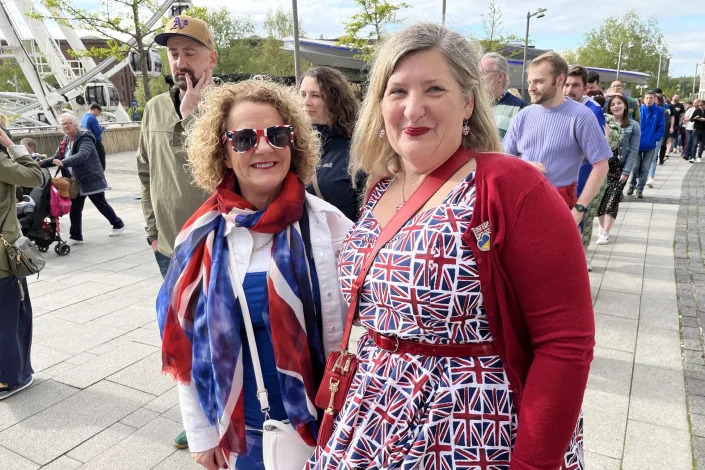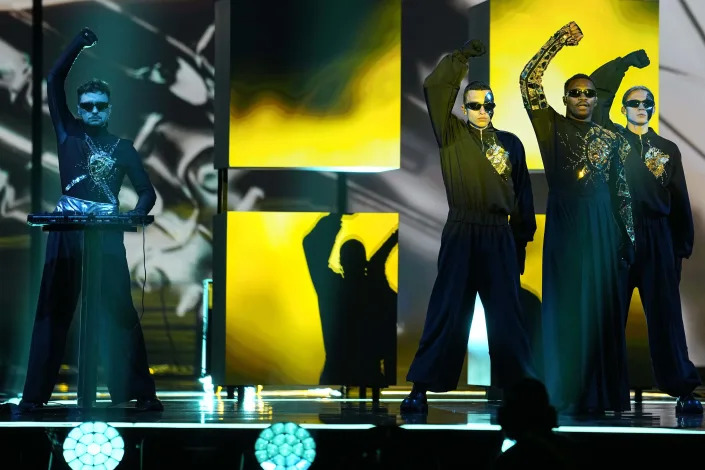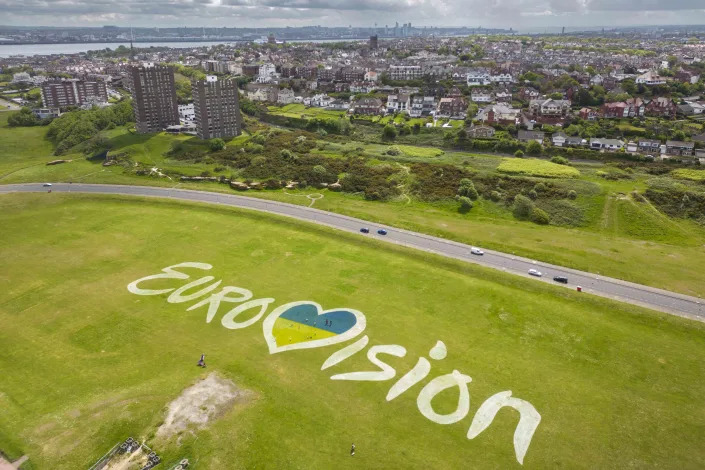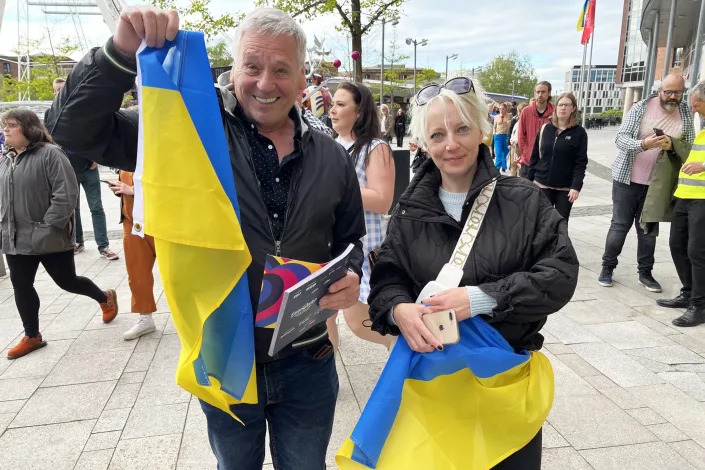
Pop — and politics — will be on display as Britain hosts a Ukrainian-hued Eurovision song contest
nbcnews: In the birthplace of The Beatles, another beloved pop music institution is being hosted — the Eurovision Song Contest.
And Liverpool in northern England is ablaze with the blue and yellow of the Ukrainian flag after the city stepped in to hold the glitzy international music competition in place of Kyiv, which continues to suffer near daily bombardment almost 15 months after Russian President Vladimir Putin launched his invasion.
“Wherever you look, you can see Ukraine colors,” Angie Desmond, who was decked out in British flags, told NBC News on Wednesday as she lined up to watch a dress rehearsal of the second semifinal.
Desmond, a 56-year-old secretary, added that she thought the local community had done a “fantastic” job of embracing Ukrainian culture. “Everybody’s jumped on it,” she said.
Founded in 1956 to help unite a continent scarred by World War II, Eurovision has grown to include 37 countries, including non-European nations such as Israel and Australia.
The European Broadcasting Union, which runs Eurovision, strives to keep pop and politics apart — banning overtly political symbols and lyrics — but global tensions have often imposed themselves on the contest.
Ukraine won the contest in 2016 with a song about the expulsion of Crimean Tatars by the then-Soviet Union’s forces in the 1940s. Coming on the heels of the Russian annexation of Crimea in 2014, the song proved controversial.
The country’s Kalush Orchestra, a folk-rap ensemble, won last year’s contest, so Ukraine would normally have hosted this year’s competition.
But organizers decided Kyiv was not safe enough to host, so the United Kingdom, whose Sam Ryder came second last year, stepped in.
And the beleaguered Eastern European country selected Tvorchi, an electro pop-duo, in a live television program filmed in a metro station below Kyiv to avoid any disruption from the war.
Although it’s taking place on British soil, there has been a concerted effort to make sure Ukrainian elements are noticeable throughout.
One of the hosts, Julia Sanina, is Ukrainian and scenic shots of her homeland will feature prominently throughout Saturday’s Grand Final.
“The really interesting thing for us creatively was the relationship with Ukraine,” Claire McColgan, Liverpool’s director of culture, said in an interview Wednesday, adding that the city had sought advice from Ukrainians on which artists to commission and advice on how to get the tone right.
She said that she hoped the art and culture on display in the city would enable people “to cry at something and see something that’s really beautiful and moving and shocking, but then turn a corner and laugh at something that’s just really joyful.”
Throughout Liverpool, bars and nightclubs have become temporarily Eurovision-themed sites, hoping to draw in fans who want to discuss their favorite entries and debate who will win.
Some have hosted performances by current and past acts and the playlists have been on heavy Eurovision rotation.
Longtime attendees wear T-shirts from past contests, while others dress up as their favorite acts. This year, one fan club chartered a train from London to Liverpool for die-hard supporters who blasted their favorite songs on the 2½-hour journey north from Britain’s capital.
“Liverpool supersizes everything,” McColgan said. “You know, it’s quite a big party city.”
Ukraine, as the previous winner, automatically progressed to the final, along with the “big five,” comprising the U.K., France, Germany, Spain and Italy who get a free pass because of the financial contributions they make towards the competition.
Another 31 competed in two semifinals Tuesday and Thursday with 10 from each going through to the final.
The winner every year is decided by a combination of votes by the public in each participating country and national juries of music experts.
One country not invited is Russia, long a powerhouse in Eurovision until it was kicked out of the competition last year after the invasion.
Tensions with Ukraine have, however, been evident for years. Russian acts were booed after lawmakers passed legislation known as the “gay propaganda” law in 2013, that has been used to stop gay pride marches, detain gay rights activists and effectively outlaw any public expression of LGBTQ behavior in Russia. They were also given a hostile reception after Russia annexed Crimea.
Anna Yatskiv Vasylyshyn, who fled to Britain from Ukraine with her two teenage daughters after the Russian invasion, said the contest was a moment to celebrate.
Carrying Ukrainian flags, she said she had traveled to Liverpool from the nearby town of Blackpool, with John Elliot, a retired 72-year-old who hosts her family.
The contest, she said, was “very big for Ukraine” because it allowed her country to have a moment on the world stage. She added that she was “very happy that I’m Ukrainian too and that I have this chance, thanks to England to be here.”
Alongside the seriousness is some silliness. Among the favorites is Finland’s Käärijä, whose song “Cha Cha Cha” is about leaving the worries of the work week behind and hitting the dance floor.
Austria’s entry “Who The Hell Is Edgar?” by Teya & Salena, is about being possessed by the ghost of Edgar Allan Poe and has racked up millions of views on social media.

















Leave a review